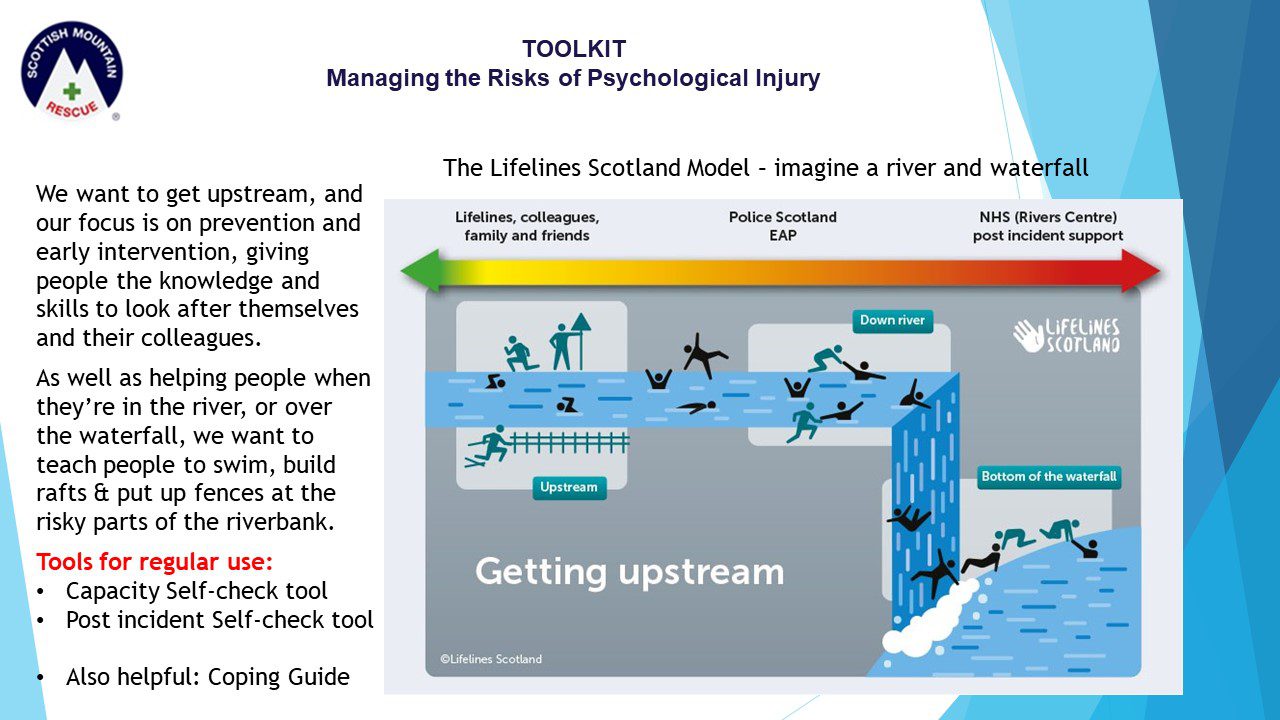TOOLKIT
Managing the Risks of Psychological Injury

This toolkit contains information and tools that we can use to “GET UPSTREAM” – how we can prepare, lower the risk and reduce the risk of psychological injury.
Remember, We can also use the Psychological First Aid model to help anyone in distress, whether that be a colleague or those we go out to help (eg a member of the public caught up in an incident/rescue). The Lifelines website has more information: https://www.lifelines.scot/post-trauma-support-providing-psychological-first-aid
The toolkit can be used to support the “Humanitarian” section of the IIMARCH briefing structure in Incident Management.
You can download the editable PDF of the Post Incident Self-check Tool to fill out digitally. Note that at this stage you will still need to add the numbers manually.
Any questions can be sent to wellbeingofficer@scottishmountainrescue.org